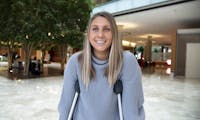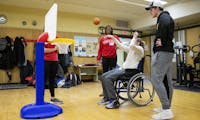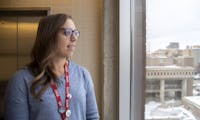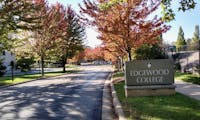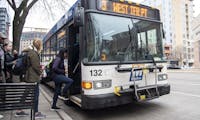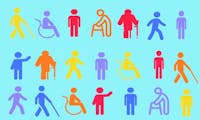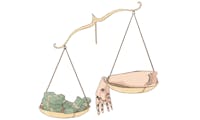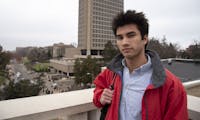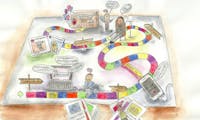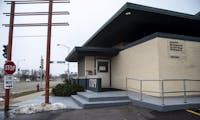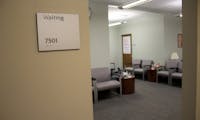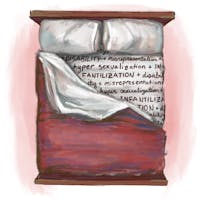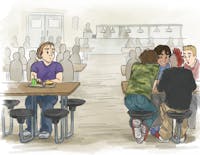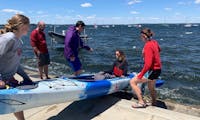News
Inclement weather makes UW-Madison campus even less accessible
Getting around campus during winter in Wisconsin can be tough. Between the snow and ice, some UW-Madison students are bound to slip a few times per season — but campus can be more treacherous for students with disabilities.
UW-Madison launches “Promoting Activity for Diverse Ability” certificate
Being welcoming and accommodating are essential to people with disabilities and integral to adaptive fitness programs, according to Tim Gattenby, a distinguished faculty associate in the kinesiology department — and creator of a new UW-Madison certificate program.
Mental health services attempt to find connections in resources
University Health Services has grappled with a growing mental health problem derived from decreased stigma and increased symptomatology — despite consistently high rankings from the Princeton Review.
Edgewood program emphasizes lack of UW system ability to accomodate students with intellectual disabilities
For years, Brianna Huebner listened to one of her students express her desire to attend college.
The wheels on the bus still go round: Accessibility of city buses
Not only do Paratransit services provide rides to and from locations, but the service can also be used to get to and from bus stops.
What’s in a name? The power of labels in disability identity, perception
The interaction between labels and identity is a double-edged sword — they can build community identity and bring accommodations, but at the same time these words often carry stigmas and assumptions deeply ingrained in our society.
‘Limbs are not a luxury’: Impending insurance fairness legislation
With a present propulsion to pass the Amputee Coalition’s Insurance Fairness bill, Wisconsin limb difference activists continue to promote insurance equality for all within their community.
There are currently two million people living in the United States with limb loss — Shawn Faessler is one of them.
Deaf versus deaf: social identity versus hearing deficiency
“People assume that the only way for Deaf people to survive is to use hearing aids,” wrote UW-Madison student Tobin Zolkowski. “Deaf people do not want to cure their Deafness.”
Zolkowski is one of 466 million deaf people in the world, according to the World Health Organization. He identifies with the Deaf community, which he believes is often misunderstood.
Legislator Jimmy Anderson believes hyper-partisanship disables vulnerable Wisconsinites
The sound of rustling papers, bits of conversation and movement on the Assembly floor began to settle as a voice spoke into the microphone, thanking his audience for their attention.
Students reflect on experiences with campus mental health services, ask for more
UW-Madison students looking for help with mental health are sometimes left to fend for themselves due to appointment limits, waiting periods and gaps in mental health services.
Incarcerated individuals throughout Wisconsin lack necessary mental health support
Despite laws protecting the mentally ill, Wisconsin lacks funding for programs that provide an alternative to incarceration.
Collaboration between UHS, McBurney for accessibility in health services
UHS works alongside the McBurney Center to make accommodations at campus events in order to ensure all students can access UW’s services.
Righting misrepresentation: Folx with disabilities can be romantic, sexual partners
Historically, there has been a lack of education and discussion on disability and sexuality, and there remain few evidence-based studies in the field.
‘I wish they knew we existed’: Disability Rights Commission informs citizens, city on accessibility
“Our goal is to look at policies that are put forward and analyze them through the lens of how this could affect a person with a disability,” Bella Sobah said.
Invisible disabilities: Obstacles of learning differences
The implications of having a learning disability can extend beyond the classroom.
Hoofers Adapt strives to increase outdoor accessibility.
When Hoofers Ambassadors was being developed last spring to promote diversity and inclusion within Hoofers, Megan Gray and Kathryn Bach had a question: Had the perspective of disability been considered?
